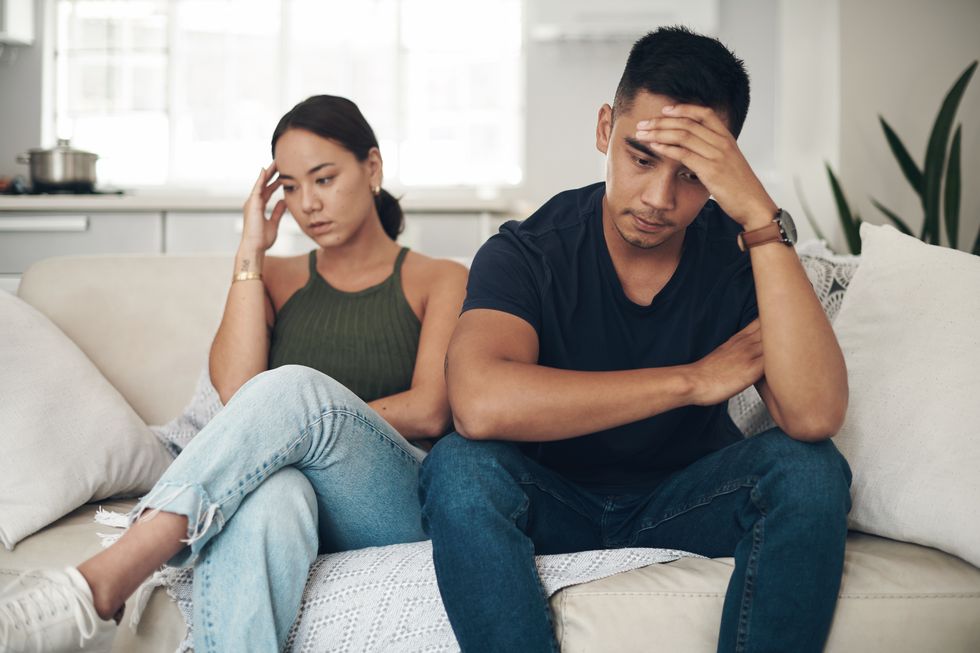Editor’s note: Find the latest COVID-19 news and guidance in Medscape’s Coronavirus Resource Center.
Most people experience COVID fatigue a few times a week, but men and women and older and younger people have reacted differently to it, a recent WebMD poll suggests.
The poll, taken from December 23-January 4, asked readers how often they had experienced COVID-19 pandemic fatigue, defined as “being angry, exhausted, frustrated or just plain fed up with disruptions to your life or those of your family and friends,” and 489 readers (120 men, 369 women) responded.
About three fourths of respondents said they are experiencing those feelings.
Women More Often Feel the Fatigue
Just more than a third (34%) of men answered they have experienced fatigue, frustration, or feeling fed up daily compared with 40% of the women; 18% of male respondents said those feelings come a few times a week compared with 25% of women.
Some (34% of men and 23% of women) said the feelings never come and they have adjusted well to the restrictions and changes.
Poll results also highlight different experiences by age and indicate younger people have been more preoccupied with the effects.
Among those younger than 45, almost half (46%) of respondents said they experience COVID fatigue daily compared with 31% of their 45-and-older colleagues; 27% in the younger group said they experience the fatigue a few times a week as opposed to 18% in the older group. Four times as many in the older group (21% vs 5%) said they rarely experience the symptoms.
The poll asked about the long-term impacts of emotional health and found considerable concern.
Table. Are you worried about the pandemic’s long-term impact on your emotional health?
| Response | Men | Women | Under 45 | 45 and older |
|---|---|---|---|---|
| Yes | 43% | 60% | 68% | 46% |
| No | 57% | 40% | 32% | 54% |
Eating, Drinking Patterns Differ by Sex, Age
More women than men responded that they have been eating more since the pandemic. While nearly a third of women said they had been eating more (32%), only 19% of men said they had. Most men (61%) reported eating the same amount compared with 42% of women.
By age, the younger group was more likely to eat less (30%) compared with 20% of their 45-and-older counterparts. The older group was much more likely to report eating the same amount (53%) compared with 39% in the younger group.
For those who drink alcohol, 16%-17% of both men and women said they have been drinking more in the pandemic. Younger respondents were more likely to report they are drinking more (20%) than those in the 45-and-older group (14%). From 11%-15% across sex and age groups reported they are drinking less these days. Nearly half of the respondents (46%) reported they don’t drink alcohol.
Combating the Effects
The poll asked about activities employed to combat pandemic fatigue and whereas men and women were just as likely to report engaging in physical activity, including walks, hikes, and exercise, women were more likely to participate in each of the other topic areas.
For example, women were more likely than men to:
Speak with a mental health professional (22% vs 6%)
Stay connected with family, friends, and co-workers (47% vs 27%)
Start a new hobby (28% vs 16%)
Use relaxation techniques (32% vs 16%)
More men than women (29% vs 24%) say they had not used any method to combat the fatigue.
Younger people were more likely than their older counterparts to report using physical activity to combat COVID stress (47% vs 33%). Younger people were almost twice as likely to start a new hobby or speak with a mental health professional (31% vs 17% and 25% vs 12%, respectively).
Women and Younger Group Report Less Patience
The poll asked respondents to weigh in on how they would characterize any behavior changes in their interaction with others.
More women and people in the under-45 group say that they had less patience and a shorter temper than prepandemic (26% vs 18% and 31% vs 17%, respectively).
Women were also more likely to say they are more reserved and speak less during the pandemic than their male counterparts.
Whereas nearly half (49%) of men said their behavior had not changed, fewer women (34%) said the same.
Few (2%-6%), regardless of age or sex, said they have become more social or interact more with others in this period.
The poll highlighted that COVID-19 continues to weave through conversations with friends and family: 61% of all respondents said they talk about the subject as much or more than they did at the beginning of the pandemic.
Women were more likely than men to say they talk about it more these days (32% vs 18%).
Marcia Frellick is a freelance journalist based in Chicago. She has previously written for the Chicago Tribune, Science News, and Nurse.com, and was an editor at the Chicago Sun-Times, the Cincinnati Enquirer, and the St. Cloud (Minnesota) Times. Follow her on Twitter at @mfrellick
For more news, follow Medscape on Facebook, Twitter, Instagram, YouTube, and LinkedIn
Note: This article have been indexed to our site. We do not claim legitimacy, ownership or copyright of any of the content above. To see the article at original source Click Here












